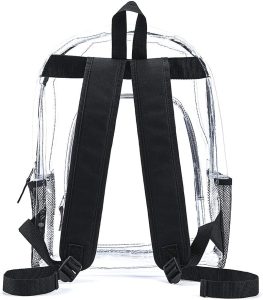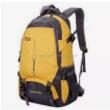1. Plan Your Trip:
- Decide on your destination, duration, and the type of experience you’re seeking (e.g., hiking, city exploration, cultural immersion).
2. Research Your Destination:
- Understand the climate, local customs, language, and any necessary travel documents like visas.
3. Choose the Right Backpack:
- Opt for a comfortable and appropriately sized backpack. Consider the volume you’ll need based on the duration of your trip.
4. Pack Light:
- Pack only the essentials. Aim for versatile clothing and avoid overpacking. Remember, you’ll likely have to carry everything you bring.
5. Plan Your Gear:
- Depending on your activities, bring essentials like a tent, sleeping bag, cooking gear, and appropriate footwear.
6. Learn Basic Navigation:
- Familiarize yourself with reading maps, using a compass, and using navigation apps if necessary.
7. Practice Setting Up Gear:
- Set up your tent and gear before your trip to ensure you’re comfortable with the process.
8. Focus on Safety:
- Carry a basic first aid kit, know basic wilderness first aid, and research potential hazards specific to your destination.
9. Leave No Trace:
- Follow the principles of Leave No Trace to minimize your impact on the environment.
10. Consider Your Food: – Plan your meals and pack lightweight, non-perishable food items. Learn how to cook with portable stoves if needed.
11. Pack Rain Gear: – Be prepared for changing weather conditions by packing a rain jacket, waterproof cover for your backpack, and other weather-appropriate gear.
12. Hydration: – Carry a reusable water bottle or hydration system. Research water sources and purification methods for your destination.
13. Choose Appropriate Footwear: – Wear comfortable, well-fitting hiking shoes or boots that are broken in before your trip.
14. Physical Preparation: – Depending on your destination and activities, work on your physical fitness to ensure you’re ready for the challenges of the trip.
15. Inform Others: – Share your itinerary and plans with a friend or family member who isn’t joining the trip.
16. Check Regulations: – Be aware of any permits or regulations required for your destination, such as camping permits or park fees.
17. Test Your Gear: – Before your trip, go on a shorter practice hike to test your gear, get used to carrying your backpack, and identify any adjustments needed.
18. Stay Flexible: – While planning is important, be open to changes and unexpected experiences that can make your trip more memorable.
19. Seek Advice: – Don’t hesitate to ask experienced backpackers for advice or join online communities to learn from others’ experiences.
20. Enjoy the Journey: – Embrace the adventure and savor the moments of discovery and exploration. Backpacking offers a unique way to connect with nature and yourself.
Remember that backpacking is a learning experience, and each trip will teach you something new. As a beginner, start with shorter trips to gain confidence and gradually work your way up to more challenging adventures. With careful planning and an open mindset, your backpacking journey can be immensely rewarding.


























